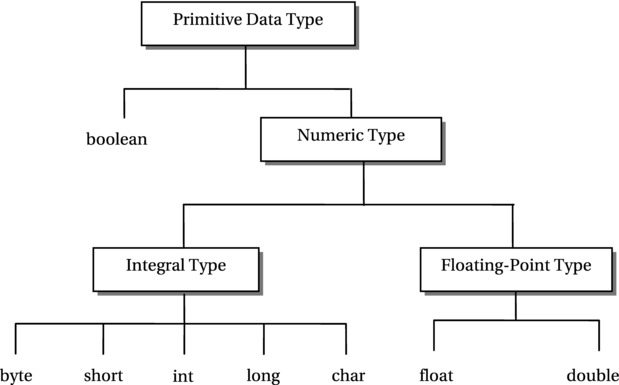It's essential for healthy bones, teeth, gums, and blood vessels. You can also get vitamin D from egg yolks, oily fish such as salmon, tuna, and sardines, and fortified foods like milk, soy milk, and orange juice.Teens need 15 micrograms of vitamin D from food or supplements every day. Ask your doctor if supplements are right for you.Vitamin EVitamin E is an antioxidant and helps protect cells from damage.
It is also important for the health of red blood cells.Vitamin E is found in many foods, such as vegetable oils, nuts, and green leafy vegetables. It's also added to some breakfast cereals.Teens should get 2.4 micrograms of vitamin B12 daily.Vitamin B6Vitamin B6 is important for normal brain and nerve function. It helps maintain healthy skin and is important for nerve function.You'll find niacin in red meat, poultry, fish, fortified hot and cold cereals, and peanuts.Teen guys need 16 mg of niacin daily. It is also needed to make DNA.Liver, dried beans and other legumes, green leafy vegetables, asparagus, and orange juice are good sources of this vitamin.
So are fortified bread, rice, and cereals.Teen girls and guys need 400 micrograms of folate daily. Speaking of calcium, vitamin D would be ineffective is there is not enough calcium to process. While calcium is the most abundant mineral found in the body, a study of adults over 50 showed more than 40% were calcium-deficient. However, dietary changes, such as following a vegan diet, may reduce the daily intake. Folate or vitamin B9 is another nutrient that many women don't get enough of in their diets. Folate can greatly reduce the chance of neurological birth defects when taken before conception and during the first few weeks of pregnancy.
Folate can also lower a woman's risk for heart disease and certain types of cancer, so even if you're not planning on getting pregnant , it's an essential nutrient for every woman of childbearing age. In later life, folate can help your body manufacture estrogen during menopause. The best way to get these vitamins and other nutrients is by eating a healthy, balanced diet of fruits, vegetables, whole grains, nuts, seeds, beans, legumes, lean meats, healthy fats, and low-fat dairy. But if you're not, you may not be getting adequate amounts of vitamins and minerals to keep you feeling your best. A specially formulated multivitamin for your age and gender, like Nature Made Multi for Him or Multi for Him 50+, provides nutritional support to fill in nutrient gaps missing from your diet.
What Vitamins Should A 19 Year Old Take If you're looking for a great multivitamin for kids that shows up on your doorstep when you need it to, Ritual's Essential for Kids 4+ is an excellent option. The subscription-based gummy multivitamin is formulated with key nutrients to help fill nutrition gaps in order to support growth and development. Vitamin D becomes even more important in your forties, Dr. Steinbaum says.
Low levels of vitamin D have been linked to a host of diseases—from cancer and autoimmune conditions to diabetes and obesity—and our risks for many of these tend to increase with advancing age. "Get your blood levels of vitamin D tested to see where you stand and supplement accordingly," she suggests. This holds for men and women in their fourth decade—you may be low and not even know it. It's almost impossible to get all the D you need from food alone and almost none of us gets enough sun in the era of sunscreen, so D supplements may be necessary.
And don't forget your omega-3s either, as heart disease risk climbs with age for men and women, she shares. For many women, "these tend to be the childbearing years," says Suzanne R. Steinbaum, DO, director of Women's Cardiovascular Prevention, Health, and Wellness at Mount Sinai Hospital in New York City. If you're planning to get pregnant, start taking a prenatal vitamin with folic acid and B-complex. Folic acid reduces the risk of neural tube birth defects and other B vitamins help support a healthy pregnancy.
Taking these vitamins may also reduce your babies' autism risk. Women with heavy menstrual periods may need extra iron too, says Dr. Steinbaum. Vitamin D is a nutrient that helps the body use calcium and phosphorous to build and maintain strong bones and teeth. Vitamin D is unique in that it can be synthesized by the body after exposure to ultraviolet rays from sunlight. Too little vitamin D can cause calcium and phosphorus levels in the blood to decrease, leading to calcium being pulled out of the bones to help maintain stable blood levels.
This can cause rickets in children and osteomalacia or osteoporosis in adults. However, too much vitamin D can cause too much calcium to be deposited in the body, which can lead to calcification of the kidney and other soft tissues including the heart, lungs and blood vessels. The human body requires 13 vitamins and at least 16 minerals essential to your health.However, while all adults need a variety of key vitamins and minerals every day, men and women have different requirements. For instance, women of reproductive age require more iron than men of the same age, so women's supplements typically include iron and men's supplements don't.
If you're asking yourself, "What vitamins should I take daily for a man? " keep in mind that it varies depending on your age and lifestyle. Calcium is an important mineral for maintaining healthy bones. It can also help to reduce the loss of bone mineral in post-menopausal women aged 50+.
To achieve this, you should consume 1200mg calcium daily from all food sources. Calcium can be found in green leafy vegetables, soy products, cheese, yoghurt, milk, nuts and fish where you eat the bones. Adding a variety of foods to a teen's diet can help her get what she needs, and supplementing with multivitamins may benefit some teens. Getting enough folate, a B vitamin, is especially important for women who may become pregnant, since adequate folate can help lower the risk of having a baby with spina bifida or anencephaly. For the folate to be effective, it must be taken in the first few weeks of conception, often before a woman knows she is pregnant. That's why the Centers for Disease Control and Prevention recommend that all women of childbearing age consume 600 micrograms a day of folic acid.
This amount and other important nutrients for pregnancy—iron, calcium, vitamin D, and DHA—are available in a prenatal multivitamin. Although it's important for women in their 20s to get enough folate, there's a fine line between the right amount and too much. The UL is 1,000 micrograms per day of folic acid from supplements and fortified foods; there isn't a risk with dietary folate. The main concern with exceeding this limit is that high blood levels can hide a B12 deficiency which, if allowed to persist, can result in permanent neurological damage.
Getting enough calcium is critical to keeping our bones healthy, not to mention the heart, nerves, and muscles. The NIH recommends that women 19 to 50 years old and men 19 to 70 get 1,000 mg a day. That goes up to 1,200 mg a day for women starting at age 51 and for men after 70.
As with many nutrients, getting calcium through your diet, and not a supplement, is ideal. Good choices include low-fat dairy , fortified cereals and juices, and sardines. Among other things, you need calcium to build healthy bones and teeth, keep them strong as you age, regulate the heart's rhythm, and ensure your nervous system functions properly. Calcium deficiency can lead to, or exacerbate, mood problems such as irritability, anxiety, depression, and sleep difficulties. If you don't get enough calcium in your diet, your body will take calcium from your bones to ensure normal cell function, which can lead to weakened bones or osteoporosis.
Women are at a greater risk than men of developing osteoporosis, so it's important to get plenty of calcium, in combination with magnesium and vitamin D, to support your bone health. Bones become weaker and open to fractures, especially in women over 50. Vitamin D is mainly acquired from sunlight and absorbed through the skin. This vitamin helps process calcium, which is vital for healthy bones.
Unfortunately, more than 50% of American adults do not get the daily recommended dose. A vitamin D supplement helps with the daily requirement, though nothing beats getting some daily sunlight. You should be getting all the vitamin B12 you need if you eat a varied and well-balanced diet.
However, as you get older, it can become harder to absorb vitamin B12, which is found in foods like meat, cod, salmon, milk, cheese, eggs and fortified cereals. According to government dietary recommendations, adults need 1.5mcg of B12 daily. Most multivitamins contain B12 but you can also find it as a single ingredient supplement. The NIH recommends that adults get, on average, 2.4 mcg per day of vitamin B12.
When it comes to food, you can get what you need from fish, meat, poultry, eggs, milk, clams and beef liver, as well as from some fortified cereals. Many multivitamin supplements also contain this key nutrient, or you can take it on its own. As we age, our bodies typically don't absorb vitamins and minerals as well as they used to. The poster child for this is calcium, and a deficiency can lead to bone fractures and, eventually, falls. A lack of consistent, weight-bearing exercise can make this worse.
For those who eat a healthful diet, a multivitamin may have little or no benefit. A diet that includes plenty of fruits, vegetables, whole grains, good protein sources, and healthful fats should provide most of the nutrients needed for good health. When it comes to specific vitamins and minerals, some Americans get less than adequate amounts, according to criteria set by the National Academy of Medicine. For example, more than 90% of Americans get less than the Estimated Average Requirement for vitamin D and vitamin E from food sources alone.
Vitamins in small quantities are essential for normal metabolism. Our bodies don't make them, so we must get them from a well-balanced diet. The American Academy of Pediatrics advises that children who receive a well-balanced diet do not need extra vitamin intake over and above the recommended dietary allowances . More than one-third of children in the U.S. take dietary supplements routinely.
Although there's no doubt it's important for our health, the exact amount we need can be somewhat confusing. The recommended daily allowance calls for about 75 milligrams daily for women and 90 mg for men, yet not everyone agrees. If you prefer to get your vitamin C through food, Brill recommends a half-cup of raw red sweet pepper , a medium kiwi , or a medium orange . Other foods rich in vitamin C include strawberries, kiwi, cantaloupe, and broccoli. Because vitamin B12 occurs naturally only in animal products, vegans and some vegetarians should take B12 supplements. Getting enough folic acid is critical for all women who may become pregnant in order to reduce the risk for neural tube, or spinal cord, defects.
Since 1998, many foods such as breads, cereals, and pastas have been fortified with folic acid, which is a step in the right direction. Women contemplating pregnancy, however, should be sure to get 400 micrograms of folic acid daily, typically through a supplement. The body can get many of these vitamins and minerals from a healthy diet. A pharmacist can recommend a multivitamin that contains most of these vital nutrients.
With compounding, pharmacies can create a customized supplement in different forms like liquid or gel caps. Speak with a doctor, pharmacist, or compound pharmacy to determine the right supplements. Coenzyme Q10 or CoQ10 is a compound that triggers energy production in the cells. CoQ10 also helps convert food into energy and supports heart health. However, like most nutrients, the body produces less with age.
Studies show a daily CoQ10 supplementation can prevent heart disease, diabetes, kidney, and liver disease. From age 50 onwards, men and women alike can expect several changes. With age comes wrinkles, poor hearing, forgetfulness, and a gray hair or two. Slower metabolism and smaller diets reduce the chances of getting the recommended daily supply of nutrients. Persons over 50 should focus on getting the following vital vitamins and minerals for a healthier life. For a tasty, vitamin-packed gummy multivitamin, SmartyPants Kids Complete Vitamins are the way to go.
Containing 15 essential nutrients including vitamin D3 and K for bone health; and B12, omega-3 fatty acids and choline, all of which are important for a child's cognitive development. While SmartyPants Multivitamins do contain sugar, many parents and healthcare providers prefer that to artificial sweeteners or high fructose corn syrup. There are certainly diseases caused by a lack of specific nutrients in the diet. Classic examples include scurvy , beri-beri , pellagra , and rickets . But these conditions are rare in the U.S. and other developed countries where there is generally more access to a wide range of foods, some of which are fortified with vitamins. Individual vitamin supplementation may also be essential in certain cases, such as a deficiency caused by long-term poor nutrition or malabsorption caused by the body's digestive system not functioning properly.
Anyone who struggles to eat a healthy, varied, and balanced diet may benefit from taking supplements. For teenagers, it may be helpful to take iron, calcium, and vitamin D if you feel you are lacking these essential vitamins and minerals. Before you or your teenager start taking any new supplements it's a good idea to check with your GP or a pharmacist. In addition to vitamins, foods provide other nutrients that supplements do not, such as protein and fiber. You can get vitamin D from foods such as swordfish, salmon, tuna fish, eggs and fortified cereals and breads. Foods rich in B12 include clams, liver, trout, salmon, milk and fortified cereals.
Folate can be found in liver, spinach, black-eyed peas, asparagus, Brussels sprouts, lettuce, avocado, broccoli and rice. We have known for a long time about vitamin D's critical role in bone health. Several studies have failed to demonstrate a relationship between vitamin D status and the risk of developing type 1 diabetes, the form of diabetes that is most common in children. In addition, the idea that vitamin D supplements may prevent type 2 diabetes, the form of diabetes common in older children and adults, was recently dealt a blow in a rigorous study of adults. In June 2019, a National Institutes of Health-funded study of 2,423 adults reported that daily vitamin D supplements failed to prevent type 2 diabetes.
By contrast, a more recent study published in 2020 examined the collective effect of nine randomized clinical trials that tested the ability of vitamin D supplements to prevent progression from prediabetes to type 2 diabetes. Overall, there was no benefit, but when only the trials that used moderate to high doses of supplementation (≥1000 IU/day) were assessed, there was a small 12% reduction of risk compared to placebo. If you're not getting the daily recommended allowance of key nutrients by eating a healthy diet, you might benefit from taking amen's multivitaminor one specifically formulated for men over 50. This ensures you're hitting your daily target for a broad range of key nutrients, especially as you age.
The majority of older adults can get the nutrients they need from foods in a varied, healthy diet. That said, if you're worried you're missing the nutritional mark — your doctor can test you for a deficiency — calcium, vitamin D and vitamin B12 are three supplements worth considering, Chan says. Vitamin C helps your body absorb iron, a mineral that facilitates the transportation of oxygen through your blood stream and helps regulate cell growth. Vitamin C helps to keep your cells healthy and, as an antioxidant, may protect you from illness. The recommended daily intake is 75 milligrams of vitamin C for teen boys and 65 milligrams for teen girls.
Supplements can be used to get the recommended daily allowance of vitamins and minerals you need for a healthy body. While it's best to get your vitamins and minerals from eating a well-balanced diet, a supplement can give your body a boost. High doses of nutrients can also cause mild to severe side effects. Getting more than the tolerable upper intake level for vitamin D of 4,000 IU can cause symptoms of toxicity, including anorexia, weight loss, polyuria and heart arrhythmia, according to the National Institutes of Health. It can also increase calcium blood levels, which can cause vascular and tissue calcification and damage to the heart, blood vessels and kidneys.




























